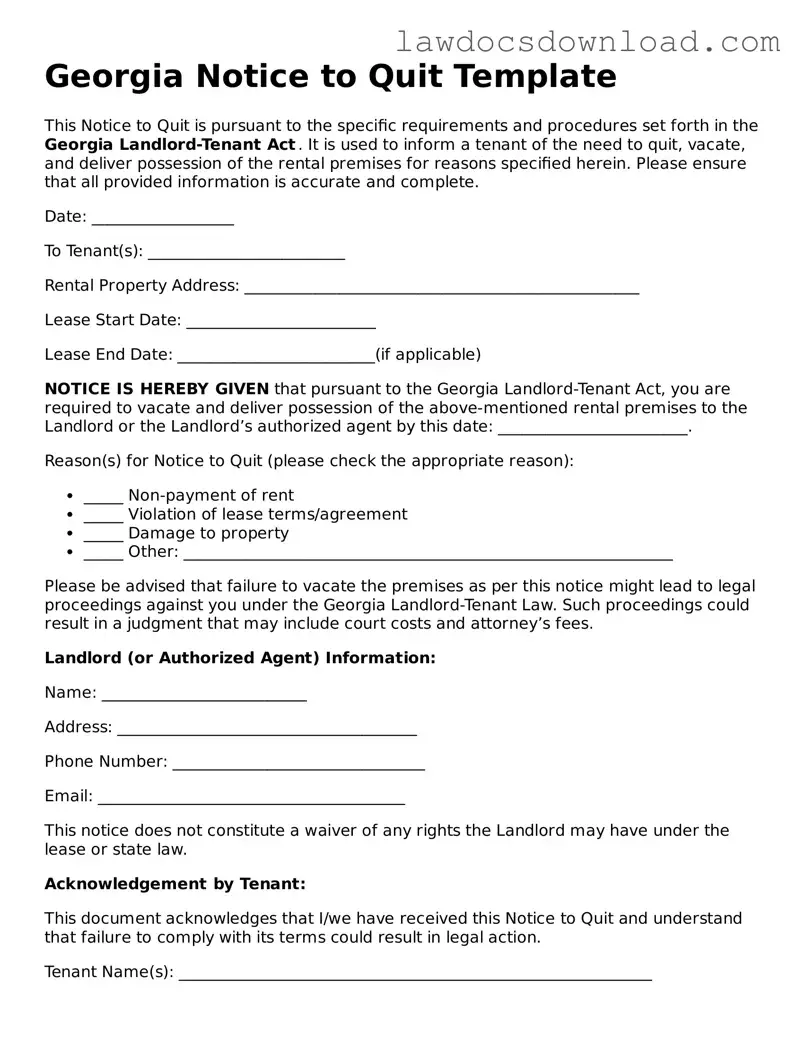Legal Georgia Notice to Quit Form
The Georgia Notice to Quit form is a legal document used by landlords to notify tenants of a breach in their lease agreement, typically due to unpaid rent or other violations. This form serves as a formal request for the tenant to rectify the situation or vacate the premises within a specified timeframe. It is a critical step in the eviction process, ensuring that both parties are aware of the breach and the actions required to address it.
Launch Notice to Quit Editor Here

Legal Georgia Notice to Quit Form
Launch Notice to Quit Editor Here

Launch Notice to Quit Editor Here
or
Free Notice to Quit
Get this form done in minutes
Complete your Notice to Quit online and download the final PDF.